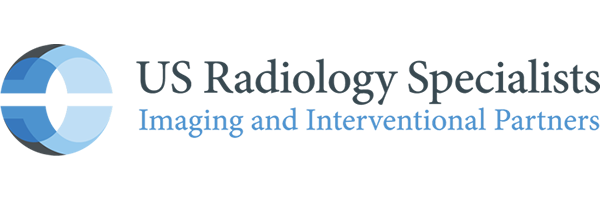Hormones play a big role in a woman’s health throughout her lifetime. Hormone levels in women normally fluctuate and change during certain periods of time, including during menses, pregnancy, and menopause. These hormonal changes can bring about physical changes in the body, including the breasts. They can also create hormone imbalances which can trigger a variety of symptoms. By being aware of these changes, understanding a normal hormonal progression in a woman’s life and learning which changes may need more attention, you can develop healthy habits and know when to seek guidance from your healthcare provider.
Understanding Hormones
Hormones are chemicals in the body that act as messengers. Traveling through the bloodstream to organs and tissues throughout your body, they affect many different bodily functions, including metabolism and energy, growth and development, mood, sexual health and reproduction. That’s why when a woman experiences a hormone imbalance — too much or too little of a certain hormone in the blood — different symptoms may occur depending on the type of hormone involved.
Hormones that can affect women’s health include:
- Estrogen and progesterone: The steroid hormones estrogen and progesterone help to regulate reproductive processes, including ovulation and menstrual cycles.
- Adrenaline: This hormone affects how we respond to stress and sparks the fight-or-flight response in the body.
- Insulin: Made by beta cells in the pancreas, insulin helps the body manage the use of glucose.
- Growth hormone (GH): In adults, GH boosts the production of protein and helps the body use and store fat. It can also raise blood sugar levels.
- Thyroid hormones: Hormones produced by the thyroid gland help control your weight, energy levels and many other functions.
Hormones are produced by the endocrine glands, which include the adrenal, thyroid, pituitary, pineal and thymus glands, as well as the pancreas. Women’s ovaries also produce hormones. Having a medical condition that affects the endocrine glands can put you at risk of having a hormone imbalance. These conditions include diabetes, thyroid disorders, cancers or benign tumors affecting the endocrine glands, hereditary pancreatitis and others.
Read More: 8 Common Breast Cancer Myths Debunked
Hormone Changes and Your Breasts
Throughout a woman’s life, hormone levels fluctuate based on many factors, particularly reproductive phases. This can lead to changes in your breasts as well as other symptoms.
- Menstrual cycles: Increased production of estrogen early in the menstrual cycle causes breast swelling and tenderness in many women as the breast ducts become larger. Having a high-fat diet and taking in a lot of caffeine can also contribute to breast swelling.
- Pregnancy: During pregnancy, your body makes more of the hormones estrogen and progesterone, which causes breasts to get larger and become tender. Many women also experience nipple discharge, bumps on the areolas and lumps in their breasts.
- Perimenopause: Symptoms of perimenopause, the period leading up to menopause, include irregular periods, hot flashes, vaginal dryness, and breast soreness. Unlike the tenderness that can occur during menstruation and pregnancy, breast pain is more pronounced during perimenopause for many women. This is due to fluctuating levels of estrogen and progesterone. Other women may experience changes in breast size and shape during this time, which usually begins when a woman is in her forties, typically around age 45.
- Menopause: When a woman reaches menopause, estrogen levels drop. Menopausal symptoms include hot flashes, mood changes, night sweats, trouble concentrating and breast pain. Breast cancer risk begins to increase after the start of menopause (more on that below).
- Post-menopause: Breasts may become smaller and more elastic due to loss of gland tissue, so they do not appear or feel as firm. However, research shows that weight gain during menopause can cause breasts to grow larger.
Breast Cancer Risk and Age
Breast cancer risk increases as we grow older. As our bodies age, our breasts become susceptible to genetic mutations, which can lead to cancer. Additionally, experts believe that exposure to estrogen, which adds up over a lifetime, can cause cancer to develop in some women. Even the age that a woman begins menopause can impact breast cancer risk.
During menopause, hormone replacement therapy (HRT) — more specifically, menopausal hormone therapy and estrogen-progestin therapy — has been known to help relieve menopausal symptoms. However, the jury is still out on HRT’s impact on breast cancer risk. Recent studies have called into question whether or not the benefits outweigh the risks of HRT and have indicated that breast cancer risk can increase for women undergoing these therapies.
The two biggest risk factors for breast cancer are being a woman and growing older. This is why breast health experts recommend annual screening mammograms starting at age 40 and continuing as women age. Knowing how long to continue mammograms is often a question and a personal decision. The fact is that life expectancy can be improved by continuing with annual screening mammograms after age 69, and the U.S. Preventive Services Taskforce promotes the benefits of mammograms up to age 74. Women should continue annual screening mammograms into their 50s, 60s, and 70s in consultation with their primary healthcare providers, especially when women are in good health and leading active lives and have longer life expectancies.
Treatment Options for Hormone Changes in Women
In addition to the symptoms caused by hormone changes related to menstruation and menopause, other types of hormone imbalances can cause a wide range of symptoms for women. In many cases, these symptoms can be managed effectively with lifestyle changes and medications. Treatment options vary according to the hormones involved and the symptoms
Hormone therapy to replace estrogen and/or progestin can relieve menopausal symptoms in some women. Healthy habits such as getting plenty of sleep, eating a healthy diet and exercising can also help.
Your Partner in Women’s Health
Staying up to date on your well woman visits — including annual screening mammograms — is very important as you get older because it helps both you and your doctor track any changes in your health. Breast health experts recommend annual screening mammograms starting at age 40 and continuing every 12 months as you grow older, especially as the risk for breast cancer increases with age and changes in hormones.
The experts at Charlotte Radiology are here for all of your breast imaging needs to help you keep your health a priority at every age. We offer comprehensive screening and diagnostic imaging services, serving the breast health needs of over 100,000 women each year.



